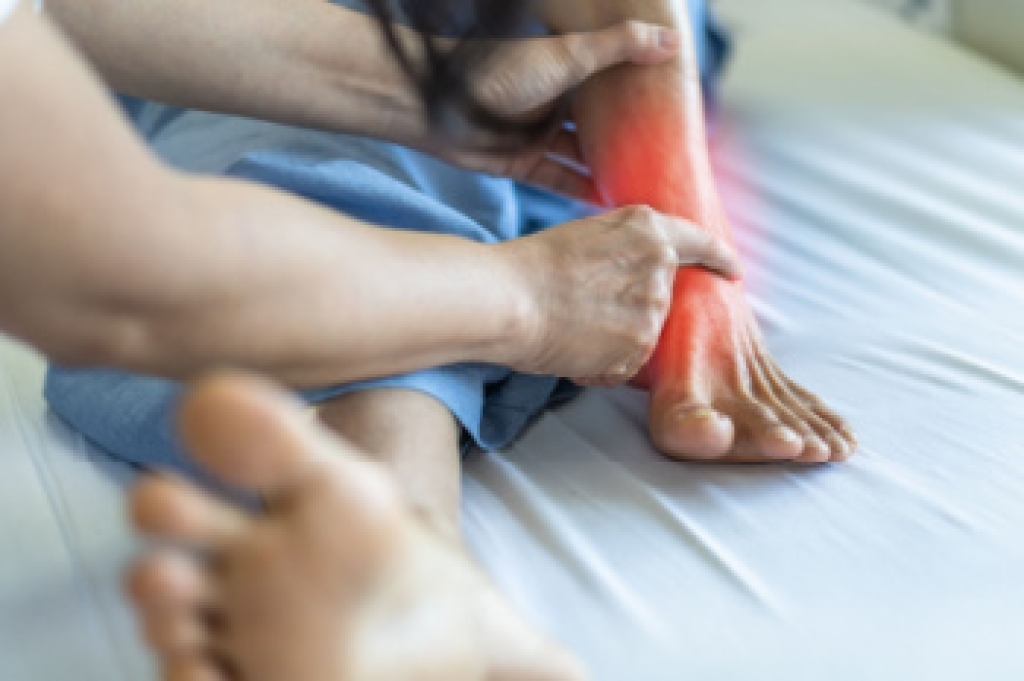
Tarsal tunnel syndrome, also known as tibial nerve dysfunction, is a condition where the tibial nerve is compressed or irritated as it passes through the tarsal tunnel, the narrow passageway on the inside of the ankle beneath the ankle bones. This compression can result from various causes, such as injury, swelling from ankle sprains, arthritis, or structural abnormalities like flat feet. Symptoms of tarsal tunnel syndrome include tingling, burning pain, or numbness of the inner ankle and sole of the foot. Some individuals may experience a shooting pain that radiates up the leg or into the toes. Symptoms tend to worsen with prolonged standing or walking. Proper diagnosis involves a thorough medical history, physical examination, and sometimes imaging tests like MRI scans to evaluate nerve compression. Relief options include rest, anti-inflammatory medications, orthotic devices, and in severe cases, surgical decompression to relieve pressure on the nerve. If you have developed ankle pain, it is suggested that you consult a podiatrist who can provide a proper diagnosis and offer treatment options that are right for you.
Tarsal tunnel syndrome can be very uncomfortable to live with. If you are experiencing tarsal tunnel syndrome, contact one of our podiatrists of Premier Ankle & Foot Specialists. Our doctors can provide the care you need to keep you pain-free and on your feet.
Tarsal Tunnel Syndrome
Tarsal tunnel syndrome, which can also be called tibial nerve dysfunction, is an uncommon condition of misfiring peripheral nerves in the foot. The tibial nerve is the peripheral nerve in the leg responsible for sensation and movement of the foot and calf muscles. In tarsal tunnel syndrome, the tibial nerve is damaged, causing problems with movement and feeling in the foot of the affected leg.
Common Cause of Tarsal Tunnel Syndrome
- Involves pressure or an injury, direct pressure on the tibial nerve for an extended period of time, sometimes caused by other body structures close by or near the knee.
- Diseases that damage nerves, including diabetes, may cause tarsal tunnel syndrome.
- At times, tarsal tunnel syndrome can appear without an obvious cause in some cases.
The Effects of Tarsal Tunnel Syndrome
- Different sensations, an afflicted person may experience pain, tingling, burning or other unusual sensations in the foot of the affected leg.
- The foot muscles, toes and ankle become weaker, and curling your toes or flexing your foot can become difficult.
- If condition worsens, infections and ulcers may develop on the foot that is experiencing the syndrome.
A physical exam of the leg can help identify the presence of tarsal tunnel syndrome. Medical tests, such as a nerve biopsy, are also used to diagnose the condition. Patients may receive physical therapy and prescriptive medication. In extreme cases, some may require surgery.
If you have any questions please contact our offices located in South York, West York, and East York, PA . We offer the newest diagnostic and treatment technologies for all your foot and ankle needs.




